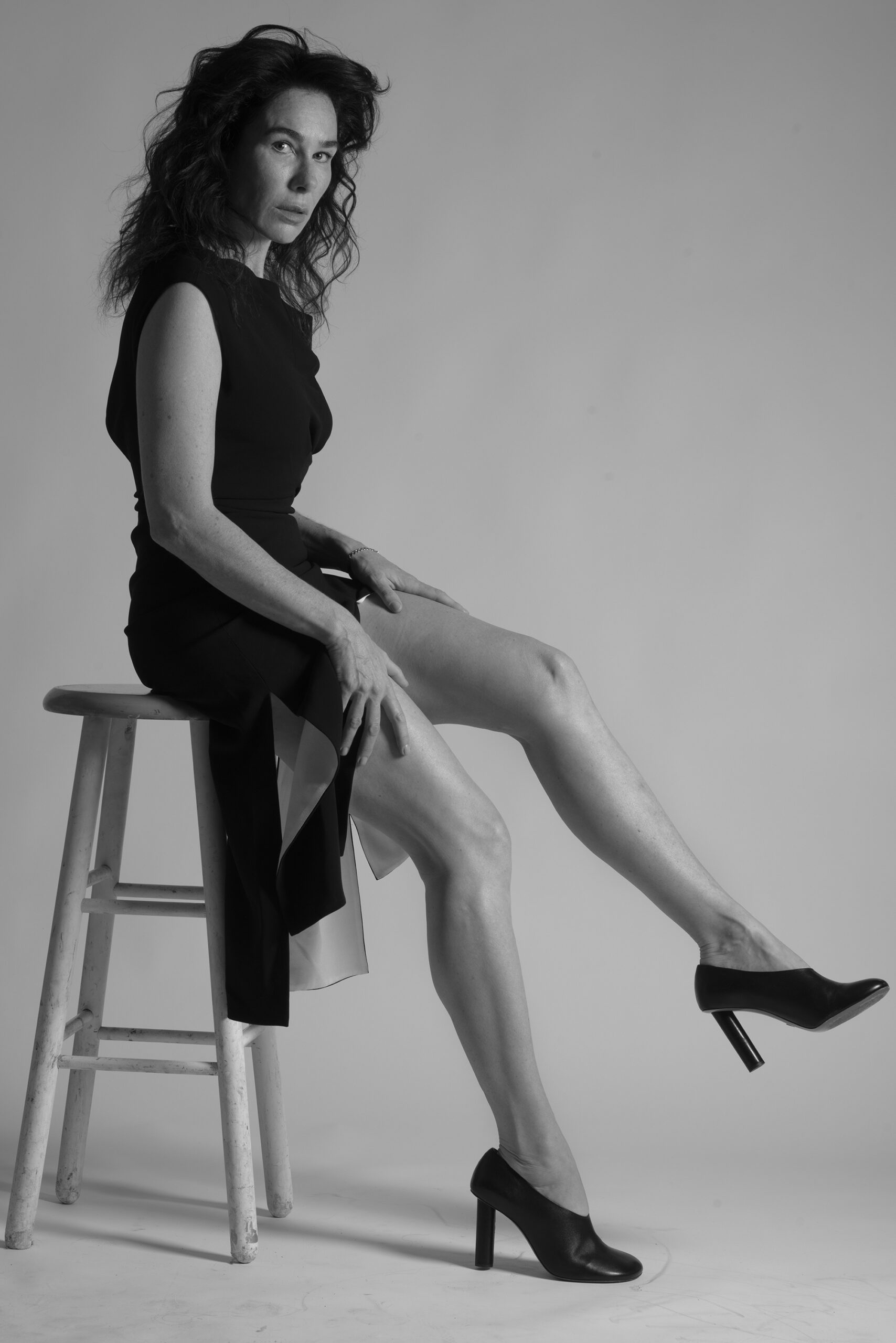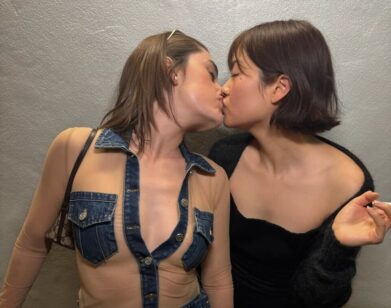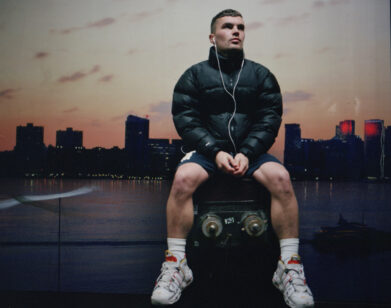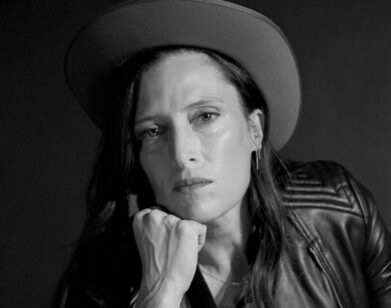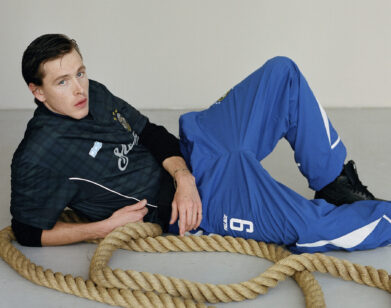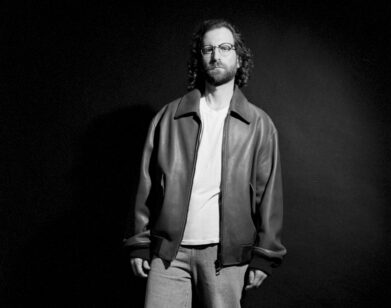DIRECTOR
Halina Reijn on the Sex, Shame, and Power Dynamics That Drive Babygirl
In an era when Hollywood retreads and corporate trends have become the backbone of blockbuster filmmaking, a crop of up-and-coming directors, unburdened by an adherence to Hollywood’s established norms and conventions, are approaching their movies with fresh, uninhibited perspectives. of ignorance in the face of industry conventions. Their work spans traditional genres, from coming-of-age comedies to sports biopics to prestige adaptations. Budgets range from streamer-funded to scraped-together. And while all of this results in different styles of filmmaking, their commonalities are much more salient. To find out why, we asked Eugene Kotlyarenko, filmmaker and host of the Director’s Commentary podcast, to speak with six early-career directors with big dreams and bigger ambitions. In the last of five installments, he talked to Halina Reijn about Babygirl, an erotic drama that boldly and comically explores sexual power dynamics in a post-girlboss world, driven by an iconic performance from Nicole Kidman.
———
HALINA REIJN: I heard you were busy.
EUGENE KOTLYARENKO: We’re all busy, right?
REIJN: We’re busy selling ourselves, but why? I don’t know.
KOTLYARENKO: I think filmmakers have an urgency. We want to start conversations about things we observe, that we don’t see other people expressing. So we have to sell it a bit for people to engage. I feel that urgency in Babygirl, for sure.
REIJN: Thanks. You’re absolutely right.
KOTLYARENKO: The movie even starts urgently. We hear moaning before we even see an image; the sounds of sex, or would you call it lovemaking? Actually, the distinction between sex and love is what the movie is about. And the set up is great: imagine being married to sex icon Antonio Banderas and not being able to find sexual fulfillment?
REIJN: It was really important to portray something that looks shiny on the outside. Nicole Kidman has it all: a big career, a sexy, creative husband, beautiful children, a great house. And as long as we take IVs and Botox and therapy and cryo and oxygen chambers, we seem to be more and more in control of everything, but of course we’re not. You cannot escape. You have to face your demons and your shame in order to really have an experience here on Earth. So something like the orgasm gap, the more I started to talk about it, the more I got surprised just how huge that problem is. I knew I was ashamed of my body and this problem, but it turns out women lie to each other about it all the time. They’re very macho about it to each other, which is so fascinating to me.
KOTLYARENKO: Why do you think they do that? Because they’re scared of being vulnerable? Because they want to flex?
REIJN: Yeah, they want to flex.
KOTLYARENKO: “Oh, you don’t have an orgasm every night with your husband? I have three.”
REIJN: We also put pressure on ourselves to have a lot of sex. I think in reality a lot of couples do not have sex at all, or if they have sex, the women don’t have orgasms. We’re always afraid to fail, to not be enough. We all think we’re aliens. We all have imposter syndrome. So we compensate and lie.
KOTLYARENKO: For sure. I was very excited after watching the movie because, like I was saying, my movie [The Code] is about a couple that hasn’t had sex in a long time and the movie explores if there’s a way to change that pattern.
REIJN: The irony of it is, sometimes you are more free sexually with someone you’ve never met before than with your partner that you’ve spent all these years with. It’s very hard to reinvent yourself sexually in the company of somebody that has an X-ray of your soul, instead of just being a blank canvas.
KOTLYARENKO: Right. So one word you used a couple of times is shame, and I think that’s a really interesting arc for the key relationship in the film between Nicole Kidman and Harris Dickinson. It’s almost like he figured out a way to activate her shame, which no one else can see besides the audience. Nicole Kidman is one of the greatest of all time, but you’ve created a very vulnerable position for her to enter. Could you talk about activating shame, not just as a thing in the story, but as a conversation with the actors?
REIJN: I think for me, the whole movie is kind of a fable or comedy of manners, if you will, about power and control and sex and all of these elements in the workplace, with the workplace almost as the kink. And I’m making it to provoke a discussion with myself about things that I’m ashamed of. Look, now I’m talking to you already about 10 things that I would never, ever talk to a man about.
KOTLYARENKO: That’s the power of Interview.
REIJN: [Laughs] Thank you, Interview. But that is how I made the movie. So, yes, shame is a big part of it, but also humor. The humor comes from the shame. Because for me, humor is the key into everything.
KOTLYARENKO: Totally. People talk about obviously Bergman or Shakespeare, things that are considered deathly serious. Every single Shakespeare play, every single Bergman film is loaded with humor.
REIJN: It’s the Trojan horse of every good movie. Now we’re talking to the young filmmakers reading this: humor, humor, humor. Prioritize it over anything. You can have such a dark theme, but if you touch on the absurdism of human nature—Shakespeare is, of course, the biggest example of that.
KOTLYARENKO: Does that figure into questions of intimacy and pathetic, embarrassing behavior? I’m just curious how you went about it with Nicole and Harris.
REIJN: Yes, humor is the key into those kinds of conversations with the people that you are going to do this scary thing with. And also a kind of safety. All we can do in this life is have an intention that is pure and honest and has nothing to do with ego, so you need to constantly do the exercise of monitoring your own behavior. Only then are you allowed, I think, to take two or three other souls and let them into your darkest fantasies or whatever you want to do. So I’m like, “Listen, my intention is to make a movie about shame, about liberation, about things that we’re all afraid of, and we’re going to do it with so much elegance and style and humor that I want you to feel safe with me. Do you want to come on this journey?” I see actors as my peers, my collaborators, not just the executioner of my vision as some dictator director. And then, I don’t like rehearsing because I find that too embarrassing as an actor, so what I do is endless conversations and whatever comes out of that, I will use and rewrite and rewrite. For me, actors are everything, so that’s how I approach it. And then the whole idea of Harris and Nicole’s dynamic is that they are almost actors within the movie, exploring femininity, masculinity, power, sex in those hotel rooms. For me, sex is stop and go. It’s embarrassing. It’s great. It’s a dream. It’s a nightmare. It’s the most wonderful thing.
KOTLYARENKO: Let’s discuss that first hotel room scene. It’s an epic sequence of extreme intimacy and not formulaic at all, full of performativity, self-doubt, things people don’t often see in sexual scenes. Was it a closed set? Was there a huge crew? Just you and a DP?
REIJN: We read through everything, we talk about it, and then I do a very technical rehearsal. I do choreograph everything out, so everybody knows exactly, “You’re going to touch me here. We got to do that.” I use intimacy coordinators to make sure that everybody has their boundaries. That’s very military. I come from communes, so I think—
KOTLYARENKO: You grew up in a commune?
REIJN: Yeah. That’s why I like boundaries, because I was raised with very few.
KOTLYARENKO: What was the commune called?
REIJN: Subud, S-U-B-U-D. It’s more a belief or holistic thing. Actually, that is also in the movie a little bit.
KOTLYARENKO: Right. Her backstory.
REIJN: Okay so my approach is very military and we dance the whole dance routine. And then in this particular case, this was built in a studio, this room that’s like a womb meets an Amsterdam brothel, and we put my DP in there with them, who they know and trust, and just one boom operator. Everybody else goes out.
KOTLYARENKO: You were at the monitor or you were in the room?
REIJN: I’m at the monitor. I’m very close to them before we start, and then we do insanely long takes. It’s as if it’s a play, because I come from the theater. And that’s how we create that intimacy. I find it also very funny, that scene, and then it’s also super vulnerable to an extent.
KOTLYARENKO: You definitely feel like the characters are going through new experiences before your eyes in real time.
REIJN: Yeah, and my DP [Jasper Wolf] is also a very important figure because he behaves almost like an actor. I’ve acted with him as an actress a lot, and he always knew where I was going, which was the craziest thing. That’s why I hired him for my first movie [Instinct], and now this is my third movie with him. He feels the breath of the actor and he breathes with them and he knows how to capture that.
KOTLYARENKO: I really like your first movie, Instinct. It has a similar interest in power dynamics, obviously in a completely different culture and relationship. This movie is, not to spoil it for anyone, but way more hopeful in a way. And I think we need hope, by the way. My movie is extremely hopeful, too.
REIJN: Oh, we do. I can’t wait to see it.
KOTLYARENKO: Because what we are trying to do in different ways, is reintegrate sex, and not just sexuality, but the act of lust and lovemaking ,and analyzing it in an explicit way so that people can can feel liberated and free and comfortable enough to have these conversations. And when you force them to do that, which is discomforting, it’s a little bit nice to give them a hopeful ending. Maybe it’s wish fulfillment for us. I don’t want to psychoanalyze you, but for me, it’s definitely—
REIJN: Definitely. For me, it’s a letter to myself. It’s like trying to manifest something. And I also think what is so important in any story about gender and sexuality is that, of course, I look at it through female eyes, but I find it also so important to stress that this young man is also really exploring masculinity. What the fuck is expected of me in this day and age? How can I behave? How can I not behave? And that is also very much Harris, but he’s so gentle. He’s not at all a cliché dom. Although, I am using a lot of archetypes in my movie, but I’m trying to give it a fun spin.
KOTLYARENKO: I’ll say one thing, which is that I’ve seen your work as an actor because I’m a huge fan of Paul Verhoeven, so I’ve seen Black Book, and I remember you from it. And Paul is a huge influence on me. It’s pleasant to think about the ways that you are in dialogue with—and this is just my interpretation—but you’re in dialogue with and deconstructing and messing with the legacy of his work and a bunch of other filmmakers, too, I’m sure.
REIJN: Oh, one hundred percent. It’s definitely so influenced by his movie, Elle, by Basic Instinct, by all the thrillers of the ’90s. 9 ½ Weeks was very important for me. I was very inspired by all those movies and had fun rewatching them and creating my answer to them. Also Secretary and The Piano Teacher.
KOTLYARENKO: I definitely thought about The Piano Teacher and Elle watching this. And you know what? It’s nice. We need an American take on our sexual mores and our relationship goals and the real dark places and frustrations. Was that challenging for you as someone who didn’t grow up in American culture?
REIJN: I found so much fun in the fact that America to me has a kind of suppressed relationship towards sex, and I do too. I really relate to it. So America serves as a metaphor of my own struggles with this theme.
KOTLYARENKO: One other trope that definitely stands out is how Christmas-coded it is. You made a highly erotic, sex-positive, extremely-full-of-shame, Christmas film. One movie we didn’t talk about is Eyes Wide Shut, but obviously with Nicole and Christmas and sex odysseys, it’s hard not to think about that one. When you started writing, you were like, “Hmm, this is my Christmas gift to myself?”
REIJN: No, because I wrote it as a summer movie. But then the strike hit us, and I had to stop writing. After that, there was just no other way. In the beginning, I was very sad and I was like, “What am I going to do?” And then suddenly I thought, my favorite movie is Annie and I thought of Birth and I thought of Eyes Wide Shut. I was like, “Oh, maybe this could work,” and then, yes, the Christmas music and all of that became my American dream.
KOTLYARENKO: The movie somehow feels like an endless Christmas. It sort of spans an epic period of time, but it’s always Christmas. There’s something kind of surreal about that.
REIJN: I love the whole element in the movie of fairy tale. It’s a very honest, raw movie full of personal Easter eggs wrapped up in a fable. So in that sense, I love that Christmas layer of it.
KOTLYARENKO: Well, I think when your heart is pure and you have the courage to be honest and personal, and everything in filmmaking happens for a reason. The things you’re forced into against your will are the filmmaking gods looking out for your film. So I’m excited for this to enter the Christmas canon.

